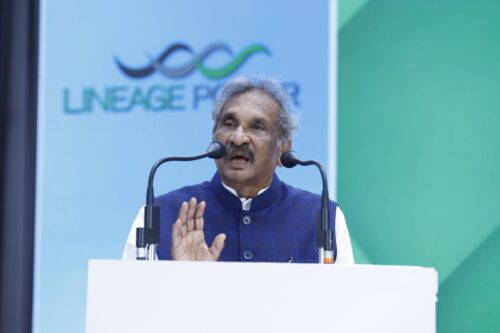GUEST COLUMN: Dr Prabhudev
Bengaluru, May 7: Fatigue is both physical and mental! Fatigue is when the tiredness isn’t relieved by sleep and rest. It is an overwhelming, debilitating and sustained exhaustion. It makes it harder to carry out even normal activities. Unlike being tired, fatigue is rarely resolved with rest or sleep. We all go through periods of low energy. Even a week of feeling more tired than usual is not uncommon.
Yet most people can tell when their fatigue feels like something more serious. Illness-related fatigue is more than just feeling tired as many people felt due to COVID- a common refrain during the pandemic was, “I’m so tired.”
No one knows your body better than you do. You know how you feel when you’re sick. If you are not responding to regular fatigue remedies, your fatigue has persisted over time, you have other symptoms, or you just don’t feel right, it’s probably time to seek medical help.
No one is immune from fatigue. Feeling exhausted is so common that it has its own acronym- TATT- “tired all the time”. Tiredness that goes on for a long time is not normal. Are you feeling bone tired? You’re not alone. Millions of people feel constantly fatigued and know the heavy toll it takes on your body and mind. It slowly eats away at your health and your ability to cope with life’s curveballs. Worse yet, it gets in the way of your work life, your family life and your relationships.
Are being tired and feeling fatigued the same thing? Answer- Yes and no. In today’s day and age, we use those terms interchangeably. Tiredness is something that is natural. You might be tired after a busy day at work or exercising. That’s normal. Fatigue is more intense than just being tired. No matter how much you rest, or how little you do, you still have this feeling of not having energy or ability to do anything.
Can High Blood Pressure Make You Feel Tired? Surely high blood pressure could make you feel exhausted and run down all the time. It’s possible! It could also be low blood pressure known as hypotension. Your brain doesn’t get enough blood flow. This can make you feel fatigued, lethargic, sluggish, tired and weak. If it’s too high or too low, it could be a sign that something is off with your health, and it increases your risk of other serious issues, like: Heart attack, Heart failure, Kidney disease and Stroke.
Heart disease, especially heart failure, can cause you to feel tired all of the time and unable to tolerate exercise. With heart failure, the heart is less effective in pumping oxygenated blood to muscles and other tissues in the body. Even your regular daily activities, like walking can become difficult.
Sure, Sleep time should be individualized. It is recommended that adults get at least 7-8 hours of sleep per night for optimal health. Insomnia is a term for any condition that causes difficulty falling asleep. Around 30% of adults have problems with falling or staying asleep. Sleep apnoea: You may a sleep disorder where your breathing is interrupted during sleep. It can lead to other health problems like high blood pressure, diabetes and heart attacks, it can also cause you to feel more tired than usual.
Hepatitis is an inflammation of the liver. The liver serves many important functions in the body from breaking down toxins to manufacturing proteins. In addition to being tired, some of the symptoms that you might experience with hepatitis include jaundice .abdominal pain, nausea, dark yellow urine, and light-coloured stools.
Anaemia affects 25% of the world’s population. If you have an iron deficiency, you don’t produce enough red blood cells. Those cells are needed to supply your body with the right amount of oxygen for organs to function correctly. It can lead you to feel run down and exhausted.
Diabetes: For people who have diabetes, a spike in their blood sugar levels makes one feel tired always. These spikes dehydrate you and causes fatigue.
Depression: Depression can cause you to have little interest in daily activities, which can lead to fatigue, as well as affect your eating and sleeping habits.
Hypothyroidism: a condition where the thyroid gland doesn’t produce enough thyroid hormone. Your metabolism starts to slow down and that can lead to fatigue.
Nutritional deficiencies – Not getting enough vitamin B12 or vitamin D – can cause you to feel tired.
Fatigue can be a side effect of several different medications.
Chronic fatigue syndrome. It has long been considered a “mystery illness,
If you have persistent, crippling fatigue that lasts 6 months or longer, you may have chronic fatigue syndrome. Those with chronic fatigue syndrome may experience symptoms like:
Muscle aches.
Difficulty sleeping.
Flu-like symptoms including joint pain and swollen lymph nodes.
Attention and memory problems.
“It can be debilitating,”
While there is no cure for chronic fatigue syndrome, it can be managed with cognitive behavioural therapy and medication like sleep aids.
But what if you’re feeling fatigued with no obvious cause? Feelings like fatigue and tiredness are multifactorial, which means a lot of factors can play a role in them. They can be the result of a variety of medical conditions.
And then, of course, there are lifestyle habits. Dehydration can contribute to exhaustion, as can what you eat and how often you exercise.
A good way to keep up your energy through the day is to eat regular meals and healthy snacks every 3 to 4 hours, rather than a large meal less often. Eat with Heart in mind!
• Get moving – Even a single 15-minute walk can give you an energy boost,
• Lose weight to gain energy
• Sleep well
• De- stress and Detox
• Cut out caffeine and alcohol






More Stories
Life is imperfect, incomplete, and impermanent
Nuances of life! Do not invite illness to realize the value of health
Mind is a familiar stranger! Mind cares and heart heals!